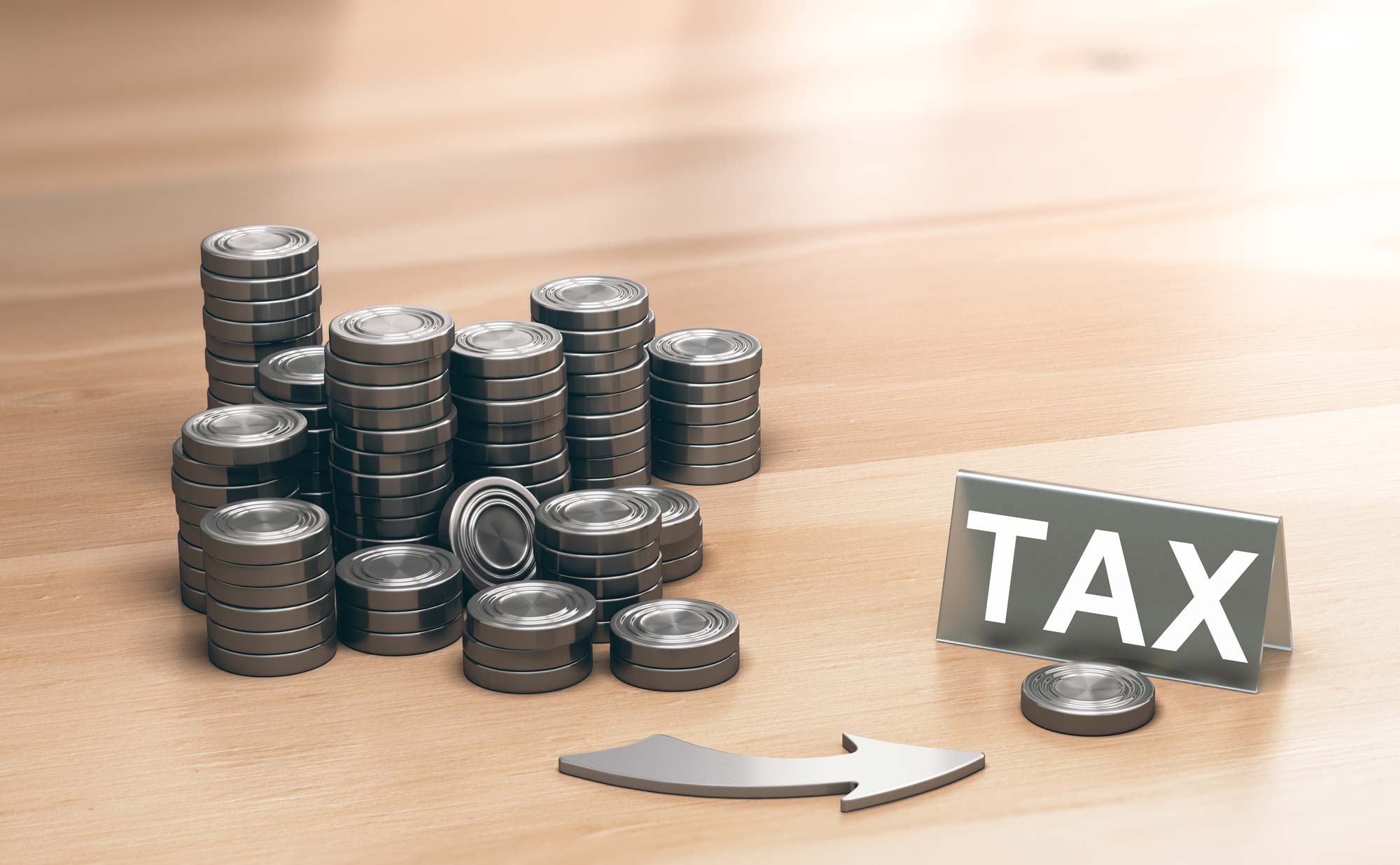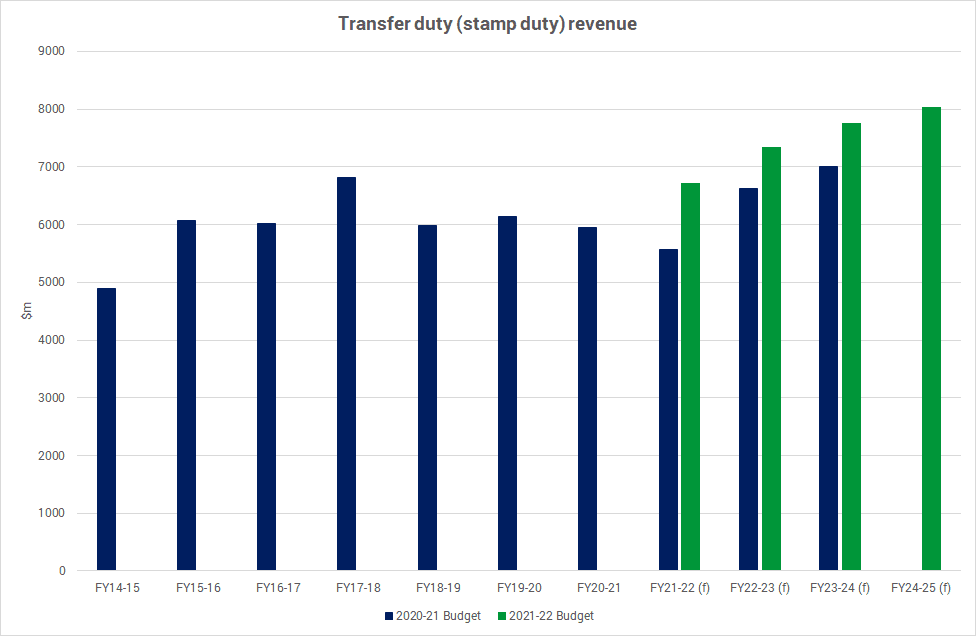The Victorian Government has delivered itself a massive 13 percent pay rise in the 2021-22 State Budget off the back of increased property taxes and new taxes on families, jobs and investment.
"With wage growth stagnant and unemployment at 6.1 percent, surely Victorians have to ask if this is the right time to hike taxes and introduce new ones" suggests Danni Hunter, Executive Director, Victoria of the Property Council.
According to the Property, Council Victorians pay over 50 percent of the Government’s tax revenue through property, and with massive hikes on land tax, stamp duty, and investment in new projects, these taxes are anything but fair.
Here's their take on the situation...
This is a budget with a heavy tax bill for Victorian families, jobs and investment in our state.
Besides the very welcome agenda on mental health, targeted stimulus for off-the-plan apartments and funding for CBD revitalisation, it is a budget that is light on policy reform, and heavy on tax hikes that could put at risk the economic recovery Victorians are working so hard to secure.
Stamp duty will go up 13 per cent and land tax will go up 15 per cent this year alone.
With NSW and other states working toward rationally reducing their reliance on property taxes, the Victorian Government has demonstrated that it has a very real addiction to this revenue.
We must return to budget surplus, but over-taxing one part of the economy, an industry that employs one in four Victorian workers, is not a fair way to do it.
Budget papers show that property tax revenue was already growing off the back of growing house prices.
The new stamp duty slug will hit 50 percent of homes in 120 suburbs by 2030.
Victorian families will pay more to buy a house that suits their needs.
Source: Property Council.
Victorian businesses will pay more in the form of increased land tax and costs on businesses through their office space or warehouses.
This in turn will flow through to the cost of products and services for every Victorian.
Source: Property Council.
With governments around the country focused squarely on stimulus and increasing investment because they know it is good for jobs and their communities, the Victorian Government has put on the noise-canceling headphones and is intent on shutting up shop.
We of course welcome the admirable agenda to rebuild our mental health system from the ground up.
With many people in the property and construction sector impacted by mental health challenges, we know this is good for our industry and our community and we applaud the Victorian Government for this initiative.
Together with the City of Melbourne and other industry groups, the Property Council put a significant case to the Victorian Government to stimulate activity in the apartment sector.
We are pleased that the Victorian Government has heard their pleas to secure construction jobs in the apartment sector through targeted stimulus, and welcome the support for the apartment sector and Melbourne's CBD and central city property market.
On current projections, without new apartment projects, this sector of the industry would lose 6,000 per year by 2023.
The budget measures are a great result for Victorians wanting to buy a new apartment and will help immensely to secure the pipeline of new projects Melbourne needs to stem the growth in housing affordability pressures.
New targeted stimulus measures to attract people back to our CBD as a place to call home, are extremely welcome and follow the Property Council's sustained advocacy to attract people - residents, workers, and students - back to Melbourne.
This funding will make a valuable difference to the vitality and sustainability of our CBD and central city.
The Victorian Budget at a glance
- Government tax revenue to increase by 13.2% this year alone, off the back of new and increased property taxes;
- Direct property tax take to increase to 46% of all Government revenue, not including payroll tax and other indirect taxes (which AEC Group estimates at approximately 59%);
- Land tax revenue to increase by 15.2% this year alone;
- Stamp duty revenue to increase by 12.7% this year alone;
- Expansion in off-the-plan concessions to $1m and inner-city stamp duty waivers to stimulate residential construction and purchase of stock overhang;
- Growing Suburbs Fund to support local infrastructure delivery;
- Introduction of mental health levy on all businesses with payroll above $10m to fund $3.8b mental health reform package;
- $11.6b budget deficit for 2021-22, small deficits forecast over the forward estimates.
Tax increases
The Property Council has provided the following summary of the various tax increases...
The Victorian Government's land tax and stamp duty hikes, plus the introduction of the so-called rezoning 'Windfall Gain' Tax, were flagged ahead of the Budget, but the budget papers reveal disappointingly little more detail about their application.
The State Taxation and Mental Health Acts Amendment Bill as tabled today in Parliament will provide additional detail in the coming days.
The introduction of the stamp duty 'premium', to apply from 1 July, which will apply on all property above $2 million, will raise $136.7 million in its first year and $761 million over the next four years.
The land tax increases of 0.25 percentage points on properties valued between $1.8 million and $3 million, and 0.3 percentage points valued at properties more than $3 million, will raise more than $1.53 billion in revenue over the next four years.
The change will apply to both the general and trust surcharge rates.
'Windfall Gain Tax'
The total value uplift from a rezoning decision will be taxed at 50 per cent for windfalls above $500,000. It will be payable across Victoria except on:
- rezonings to and from the Urban Growth Zone within existing Growth and Infrastructure Contribution areas; and
- rezonings to Public Land Zones.
The tax will not apply on rezonings between zone sub-categories but will apply between zone types. It is forecast to raise $39 million of revenue in its first year of operation in 2022-23.
The Government will introduce legislation in the coming weeks and the Property Council is actively engaged with the Treasurer and Department of Treasury and Finance on the details.
Payroll tax levy
Another key measure announced in the Budget is a payroll tax surcharge of 0.5 percent on businesses with a wages bill of more than $10m; this will rise to one per cent for businesses with wages costs of more than $100m.
The surcharge is slated to raise $387m in 2021-22 and about $3bn over four years, with the proceeds to be used to finance a $3.8bn mental health package.
The levy has been criticised by business leaders and federal Treasurer Josh Frydenberg, who warn that it will cost jobs and undermine the national economy's recovery from the pandemic saying:
Australia’s economic recovery is underway — a recovery that should not be undermined by high-taxing Labor governments whose policies to whack families and businesses will cost jobs.
Stimulus and tax relief
The Property Council are pleased to see the Government reverse its 2017 decision to restrict the application of off-the-plan concessions.
The Property Council has long advocated for additional incentives for off-the-plan purchases, and we welcome this decision.
The threshold for the off-the-plan stamp duty concession has been increased to $1 million, to apply from 1 July 2021 to 30 June 2023, in line with existing eligibility requirements.
This will provide a much-needed boost to apartment development, which has flatlined in recent years.
A new stamp duty exemption, of up to 100 percent, has been created for new dwellings worth up to $1 million in the City of Melbourne local government area, available immediately.
For new dwellings that have been unsold for less than 12 months since completion, a 50 percent exemption applies, to apply from 1 July.
These concessions will apply until 30 June 2022 and exclude Foreign Purchaser Additional Duty.
The vacant residential land tax (VRLT) exemption for new developments will extend for another two years, until the end of 2023.
Newly constructed dwellings will be exempt from VRLT for at least two tax years following completion. This is another major win for Property Council members, following sustained advocacy through the pre-budget process.
The budget also includes:
- An increase in the tax-free threshold for general land tax rates from $250,000 to $300,000, and
- An increase in the payroll tax threshold to $700,000 from 1 July.
Infrastructure
The Property Council warmly welcomes the delivery of a $50 million Growing Suburbs Fund, in line with our call-in our pre-budget submission for a fund to support local liveability in growth areas.
The Growing Suburbs Fund will provide grants for the development of key local infrastructures such as libraries, community, and cultural centers, parks, early learning centers, and sports and recreation facilities.
With the Government already fully committed to its big-ticket infrastructure delivery program ($90 billion over four years), the focus of this budget is on health, education, and transport infrastructure, with:
- $1.6 billion committed to 13 new schools and 52 school upgrades;
- $556 million to build and expand 10 community hospitals; and
- $986 million to build 25 new metropolitan trains and $368 million for 'Next Generation' trams.
The budget does not contain any State Government funding commitment to match the Federal Government's $2 billion for the delivery of Melbourne's much-needed intermodal freight terminal.
Planning
The Property Council welcomes funding to implement a five-year review of our most important planning document, Plan Melbourne.
The pandemic has delivered immeasurable change to how we live and work and it's essential our planning strategy incorporates the lessons we've learned and charted the way forward so we can continue to plan our growth effectively.
This review will take place over the next two financial years.
The Victorian Planning Authority's Streamlining for Growth program is also supported to continue for another two years, and the Geelong Authority has been funded to deliver the Revitalising Central Geelong Action Plan.
The Council is disappointed that the budget does not provide any funding or clarity on delivering an enhanced planning and governance structure for Melbourne's priority precincts.
Mental health
The headline announcement from this budget is the Government's implementation of complete reform of Victoria's mental health system, in line with the recommendations of the recent Royal Commission.
$3.8 billion will be invested over the next four years into mental health, which is being funded by the previously mentioned Mental Health and Wellbeing Levy.
The revenue from the levy will be exclusively deployed within the Victorian mental health system, which will be ensured through legislation.
Population and migration
Victoria's population growth will slowly resume at 0.3 percent in 2021-22, with the pause in international migration not forecast to lift until mid-2022.
The effect of the pandemic is that Victoria's population in 2024-25 is set to be 290,000 less than forecast in the 2019-20 Budget.
The slow return of international students to Victoria is expected from early 2022.
Source: Property Council of Australia and commentary by their Victorian Executive Director, Danni Hunter





















